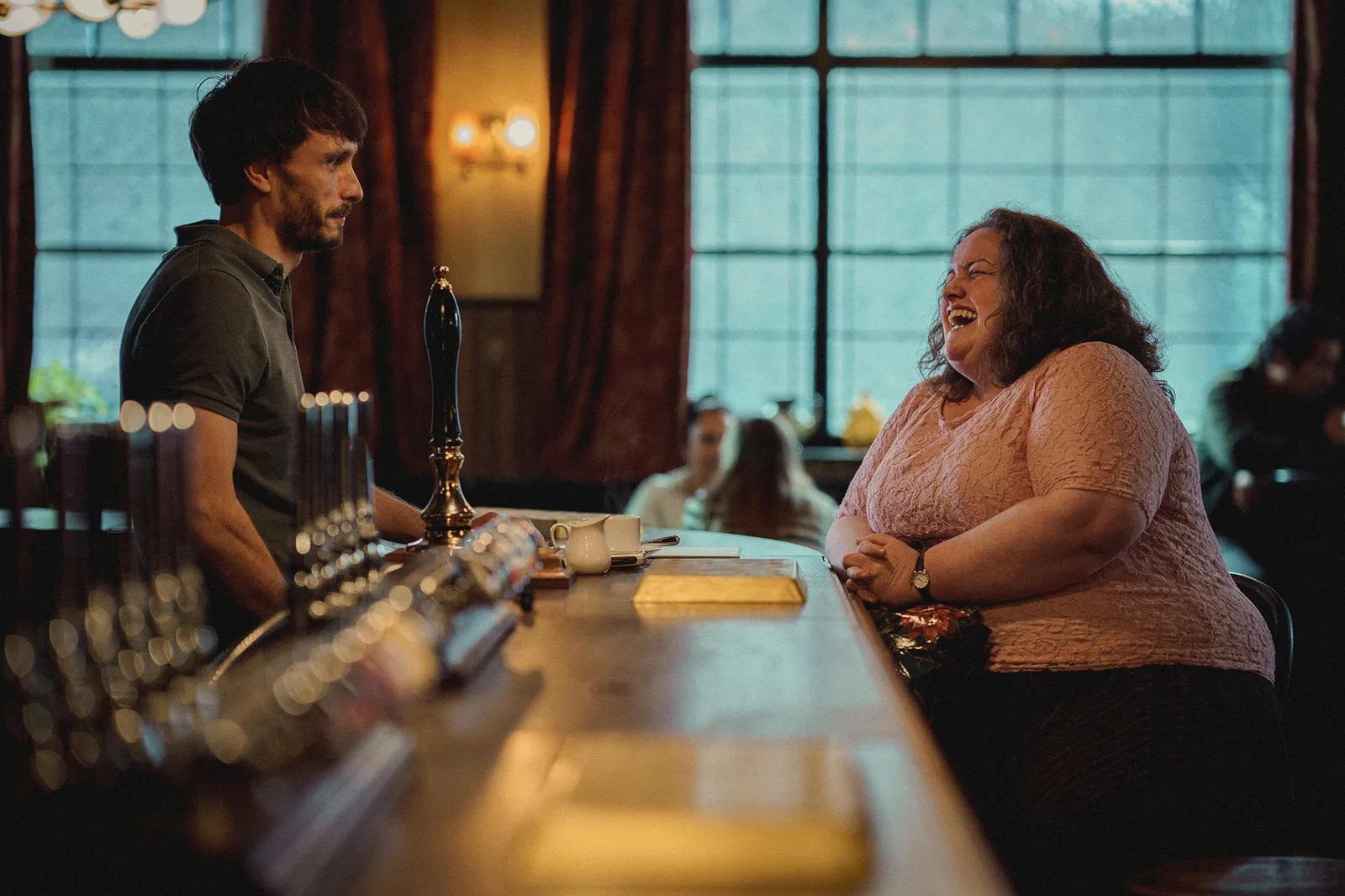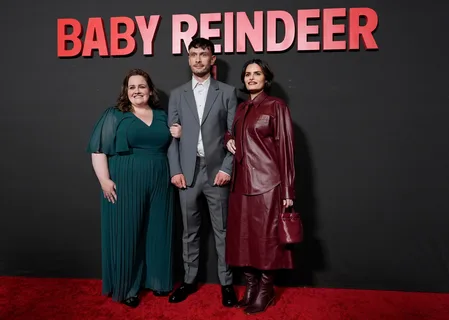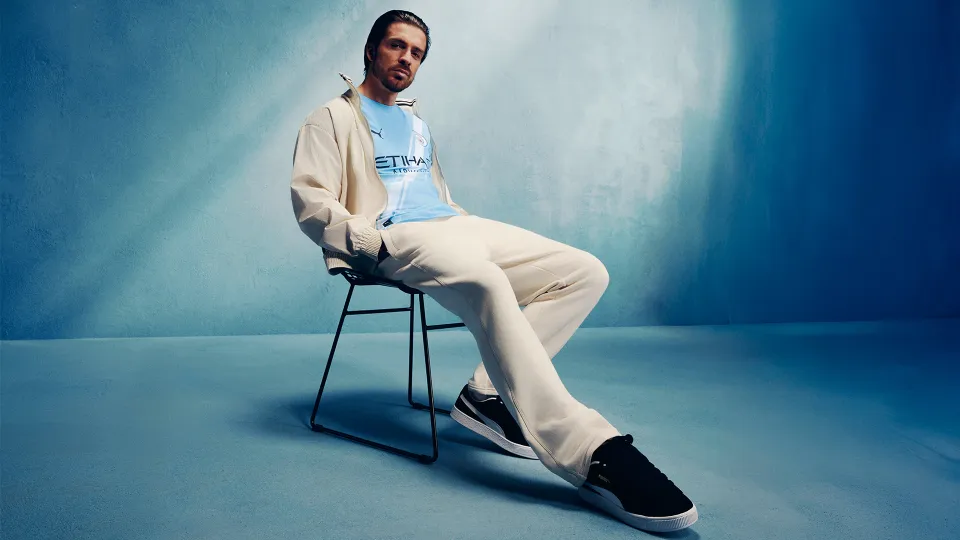Richard Gadd has never been more visible—yet, never felt more scrutinized. With the seismic impact of Baby Reindeer, his life has flipped upside down in the span of a single year. What began as a deeply personal one-man stage play evolved into one of Netflix’s most talked-about series, propelling Gadd into overnight international stardom. But fame, as Gadd quickly learned, is a double-edged sword.
In this long-form feature, we explore Gadd’s dramatic transformation—both physically and emotionally—the intense spotlight of sudden success, the public’s reaction to Baby Reindeer, and what lies ahead with his upcoming series Half Man.
The Transformation of Richard Gadd
A New Physique for a New Role
When Richard Gadd walks into a plush London hotel lobby on the morning of the BAFTA TV Awards, he barely resembles the wiry figure viewers met as Donny Dunn in Baby Reindeer. Clad in a compression shirt and gym shorts, Gadd is more than 50 pounds heavier—muscle mass he’s gained over the past nine months for a new BBC and HBO project titled Half Man.
The bulked-up frame isn’t just for show. Gadd has taken on the role with complete commitment, transforming his physique with the help of a nutritionist and a rigorous workout routine. “It’s all about diet,” he explains. “I’d been working out before, but I didn’t see any changes until they put me on a proper food plan.”
A Changed Mindset
But the real transformation might be psychological. Gadd’s rapid rise from a respected fringe comedian to one of the most scrutinized creative figures in the world has taken a toll. “There were times when I honestly felt like the whole world was talking about me,” he admits. “It was very difficult to come to terms with.”
He confesses that he’s still processing the emotional whiplash. From paparazzi to legal threats, Gadd has had to navigate the pitfalls of notoriety at breakneck speed. “I’d go to Sainsbury’s, and there I was on the cover of the Daily Mirror. It was surreal. It makes you paranoid.”
The Meteoric Rise of Baby Reindeer
A Story Too Raw to Ignore
Baby Reindeer hit Netflix quietly, without the marketing fanfare typical of streaming platform launches. But the series’ raw honesty and emotional depth struck a chord with audiences worldwide. It became a cultural phenomenon almost overnight.
Based on Gadd’s real-life experience with a stalker, the show doesn’t shy away from vulnerability. It explores themes of trauma, identity, and survival with unflinching intensity. “There was a lot of noise around the show,” says Gadd, “but if you strip that all away, what you get is a heartfelt and nuanced piece.”
Navigating the Storm
As Baby Reindeer gained traction, Gadd became the subject of intense media attention. Not all of it was flattering. “There was a moment when someone at Netflix told me, ‘You’re the most Googled man in the world right now,’” Gadd recalls. “Whether or not that was true, that level of visibility was terrifying.”
The press wasn’t always kind. Gadd found himself on the receiving end of skepticism, scrutiny, and online theorizing—much of it stemming from the show’s blurred line between fact and fiction. “I tried not to let it affect me, but you can’t escape that kind of attention,” he says.
Fame: Blessing or Burden?
The Emotional Fallout
Gadd is honest about how fame has impacted his mental health. “I remember just staring at the wall in my living room, feeling like Marge in that Simpsons episode where her dress gets ruined. Just a thousand-yard stare.”
He was also deeply moved by the solidarity he received from peers in the industry. “Some really famous people reached out—people I never expected—just to say, ‘Hang in there. I’ve been through it too.’ That meant the world to me.”
The Public vs. Private Self
One surprising aspect of Gadd’s fame is how his physical transformation has helped create distance from Donny Dunn, his character in Baby Reindeer. “The beard, the haircut, the size—they’ve all helped. People look at me now and think, ‘Is that him?’ But when I looked exactly like Donny, it was borderline unbearable.”
Though Gadd is grateful to fans who approach him, it’s the uncertainty—being stared at, whispered about, photographed covertly—that unnerves him. “With fans, I know where I stand. What’s worse is the uncertainty when people are just observing you, trying to piece together who you are.”
Legal Complications and the Fiona Harvey Lawsuit
The Lawsuit That Shook the Narrative
Fiona Harvey, who alleges she was misrepresented in Baby Reindeer, has filed a defamation lawsuit against Netflix. Gadd has remained mostly silent on the matter due to legal restrictions but acknowledges the weight of it. “I’m under very strict instructions not to say anything about it,” he says. “But it’s surreal, and it’s definitely a big pressure in my life.”
Despite the chaos, Gadd maintains that the core of Baby Reindeer was always to tell an important story. “It was never about vilifying anyone. It was about examining how trauma manifests in strange and destructive ways.”
Shifting Gears: Half Man
A New Chapter
As the storm around Baby Reindeer begins to subside, Gadd has thrown himself into his next project—Half Man, an ambitious new series he’s creating for the BBC and HBO. Shot in Glasgow and co-starring Jamie Bell, the show promises to explore a very different side of storytelling.
“This has been two shows back-to-back without even a day’s break,” says Gadd. “Writing, producing, acting—all while navigating legal calls, press calls, and personal disruptions. It’s been intense.”
What Is Half Man About?
Though much of the project is under embargo, Gadd gives a few clues. “It’s about two dysfunctional brothers in a very peculiar situation,” he reveals. “Each episode flashes back to different moments in their lives, tracing how they got to this point.”
The show is designed as a study in masculinity—though Gadd resists overused labels. “I don’t want to call it ‘toxic masculinity’ because that term has become tired. But the truth is, for something to be toxic, it has to be intoxicating first. And I really wanted to examine both sides of male relationships—the euphoric and the destructive.”
Jamie Bell: A Revelation
One of Gadd’s biggest surprises in Half Man has been working with Jamie Bell, best known for Billy Elliot. “He’s the most famous person I’ve ever worked with,” Gadd says. “And he’s reframed my entire view of working with well-known actors.”
Bell, according to Gadd, is collaborative, kind, and humble—qualities Gadd deeply appreciates. “I’ve worked with actors who were one-eighth as famous and ten times more difficult. Jamie throws himself in, takes notes, brings ideas. I think people are going to see a whole new side of him in this show.”
Looking Ahead: Fame, Art, and Identity
Wrestling With Identity
After a whirlwind year, Gadd finds himself at a crossroads—still processing the enormity of what’s happened but determined to focus on the creative road ahead. “The best of times and the worst of times,” he reflects. “I think that’s the only way to describe it.”
Despite everything, he’s proud of Baby Reindeer—not just for the awards or the acclaim, but for the way it has opened up conversations. “Every day I get messages from people saying the show changed their life or gave them the courage to speak about their own experiences. That’s what matters most.”
A Reluctant Celebrity
For all his newfound fame, Gadd remains resistant to the celebrity lifestyle. He’s a self-described control freak when it comes to his work and has no interest in being a tabloid fixture. “I always tried to avoid fame in my shows. But ironically, Baby Reindeer is the thing that brought it straight to my doorstep.”
Even now, as Half Man takes shape, Gadd is focused on creating art that digs deep into human vulnerability. “I think we’re all a little broken,” he says. “And the best stories are the ones that aren’t afraid to show that.”
Final Thoughts
Richard Gadd is not the same man he was a year ago. He’s bigger, both in fame and in frame. He’s been bruised by the public eye, hardened by legal fights, and uplifted by heartfelt messages from strangers who saw themselves in his work. His story isn’t just about overnight success; it’s about surviving the scrutiny that comes with truth-telling in an age of spectacle.
And as Half Man promises to take viewers on another emotional journey, one thing is certain: Richard Gadd isn’t done challenging us—or himself—just yet.






